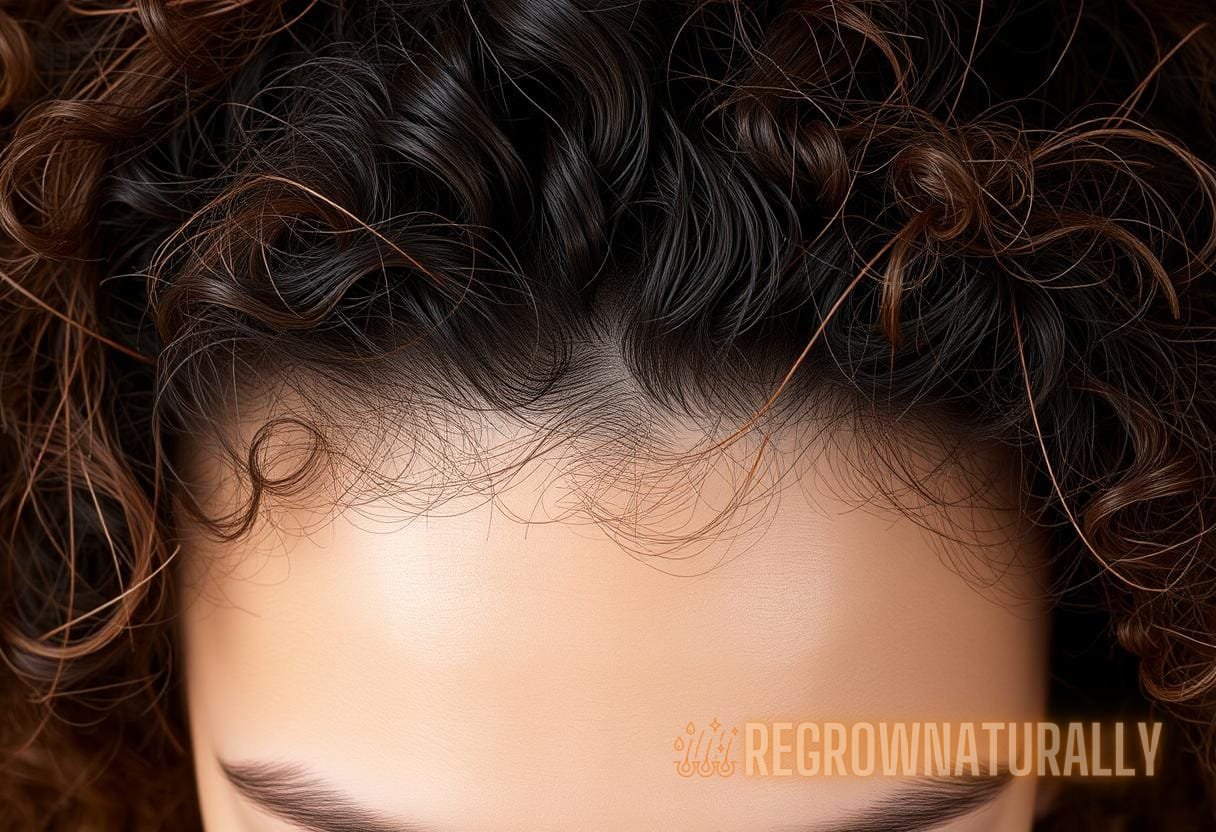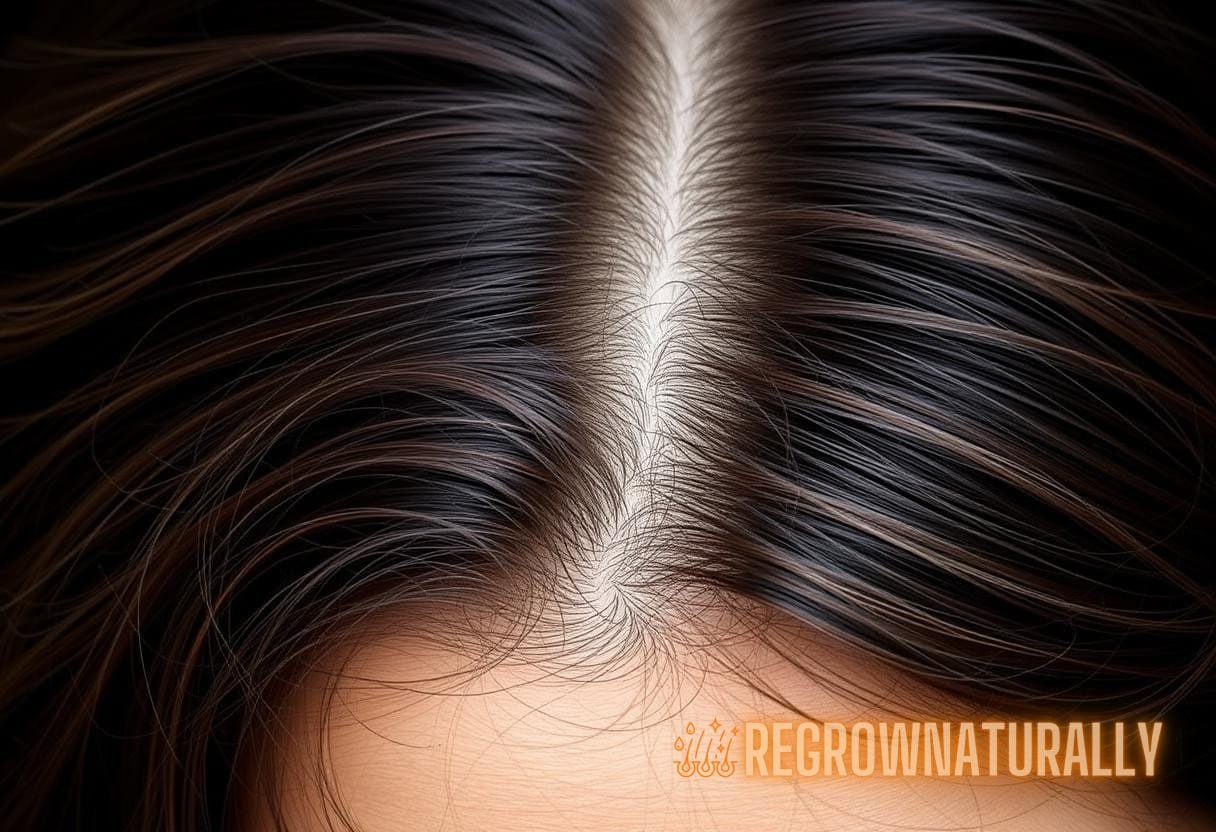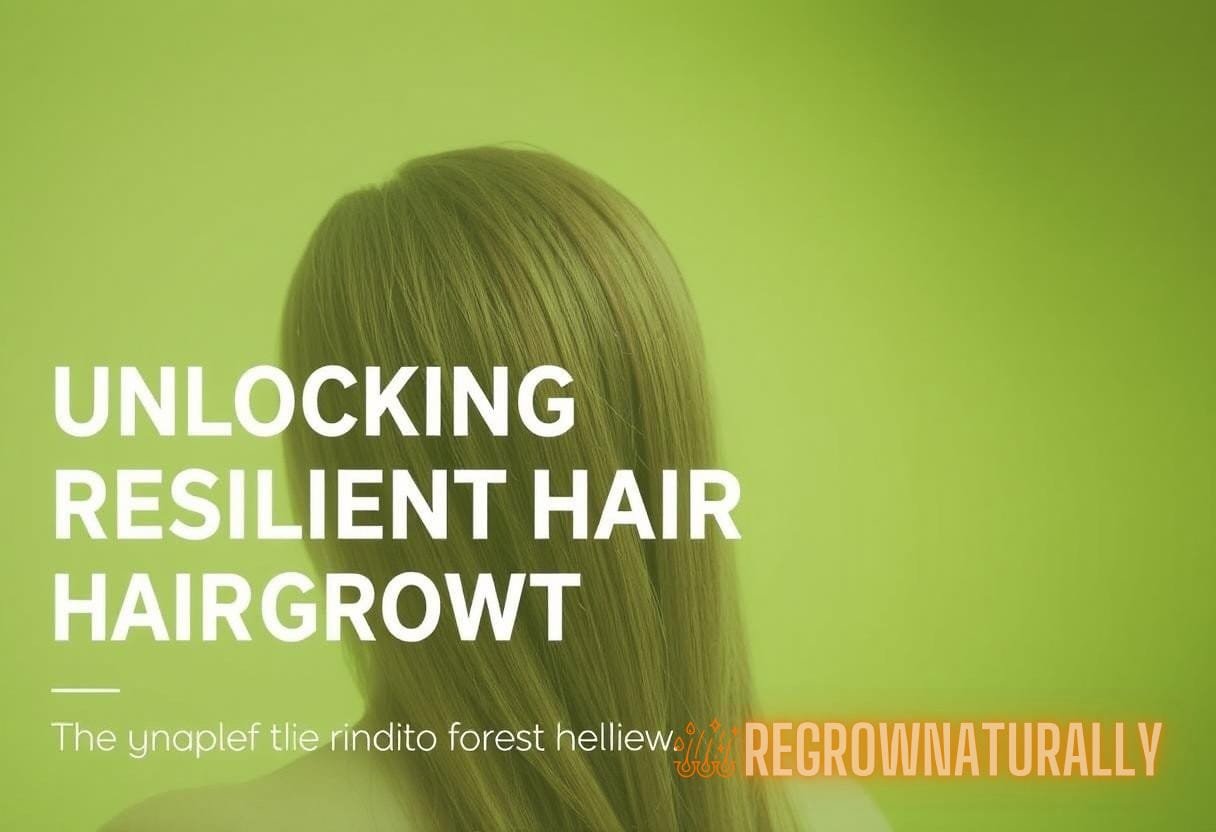Exploring the Synergy: How Mindful Practices and Science Drive Exceptional Hair Growth
Hair growth has long been a topic of interest for scientists and individuals alike. While traditional methods such as topical hair growth products and medications have dominated the market, an emerging trend towards more holistic and mindful approaches offers new insights and promising results.
The Science of Hair Growth
To fully appreciate the benefits of integrating mindful practices with scientific methods, it’s essential to understand the biological foundations of hair growth. Hair follicles are the core units responsible for hair production. Each follicle undergoes a cyclical growth process, typically divided into three phases: anagen (growth), catagen (transitional), and telogen (resting).
According to the National Institutes of Health, the anagen phase can last from two to six years, during which hair grows at an average rate of half an inch per month. Factors like genetics, hormonal changes, and environmental impacts significantly affect these stages. Understanding these factors lays the groundwork for evaluating how mindful practices can influence hair health and growth.
Mindfulness and Its Benefits for Hair Growth
Mindfulness, defined as the practice of being present in the moment without judgment, has been studied extensively for its mental and physical health benefits. Research published in the journal Frontiers in Psychology highlights that mindfulness can reduce stress and anxiety, improve emotional regulation, and enhance overall well-being.
This is particularly relevant when considering hair health. Stress has been identified as a major factor contributing to hair loss. Chronic stress can lead to conditions such as alopecia areata, telogen effluvium, and other forms of hair thinning. By managing stress through mindfulness practices, individuals can potentially mitigate these effects and promote mindful hair growth.
Integrating Mindful Practices into Your Hair Care Routine
Incorporating mindful practices into your hair care routine can be a transformative experience. Here are several methods to consider:
- Meditation: Regular meditation can help lower stress levels, which is crucial for supporting hair growth.
- Breathwork: Focusing on the breath aids in relaxation and enhances blood flow to the scalp, promoting hair health.
- Mindful Washing: Pay attention to the sensations of washing your hair, noticing the texture of products, and the feeling of water on your scalp.
- Gratitude Journaling: Write daily entries about what you appreciate in your life, including your hair. Positive emotions can influence growth.
Each of these practices not only contributes to mindfulness but also supports your overall well-being, which is vital for optimal hair growth. Incorporating these methods into a daily or weekly routine can cultivate a positive mindset around your hair care.
The Role of Nutrition in Mindful Hair Growth
Nutrition plays a pivotal role in promoting healthy hair growth. To support mindful hair growth, consider focusing on a balanced diet rich in essential vitamins and minerals. Key nutrients include:
- Biotin: This B vitamin is known for strengthening hair and nails. Foods rich in biotin include eggs, nuts, and avocados.
- Vitamin D: Essential for hair follicle cycling, vitamin D can be obtained through sunlight exposure and foods like fatty fish.
- Iron: A deficiency in iron can lead to hair loss. Red meat, spinach, and lentils are excellent sources.
- Zinc: Important for hair tissue growth, zinc can be sourced from oysters, beef, and pumpkin seeds.
Mindful living encourages individuals to tune into their bodies and nourish themselves accordingly. A focus on hydration, balanced meals, and nutrient-dense foods can significantly impact hair growth.
Case Studies: Success Stories in Mindful Hair Growth
Numerous individuals have reported remarkable results in hair growth through the integration of mindful practices alongside scientific approaches. These success stories illustrate the practical application of mindful hair growth techniques.

For instance, a study from the University of Massachusetts observed participants incorporating mindfulness meditation into their weekly routines. They documented improvements in stress levels, which correlated with a noticeable reduction in hair shedding among participants suffering from telogen effluvium. This positive change demonstrates the profound impact that mindfulness can have on hair health.
Another notable case involves a group of alopecia areata patients who participated in a mindfulness-based program that combined meditation, guided imagery, and nutritional education. Participants reported not just emotional benefits but some experiencing regrowth of hair in previously bald spots, showcasing the potential for holistic approaches in managing hair loss.
Innovative Treatments for Hair Growth
In addition to mindful hair growth practices, various scientific treatments have emerged that can complement mindful approaches. These include:
- Minoxidil: An FDA-approved topical treatment that may reactivate hair follicles and promote hair regrowth.
- Finasteride: A prescription medication that can help prevent hair loss by blocking the conversion of testosterone to DHT.
- Platelet-Rich Plasma (PRP) Therapy: A procedure that involves injecting concentrated platelets into the scalp to encourage hair growth.
- Low-Level Laser Therapy (LLLT): This non-invasive treatment utilizes lasers to stimulate hair follicles and improve hair density.
When combined with mindfulness practices, these treatments can enhance the emotional aspect of hair growth, making the journey toward fuller hair more manageable and fulfilling.
Common Misconceptions About Mindful Hair Growth
Many myths surrounding hair growth can mislead individuals seeking effective solutions. Here are some common misconceptions:
- Mindfulness is a quick fix: While mindfulness aids in stress reduction, it takes time to notice physical changes in hair growth.
- All hair products are beneficial: Not all products are created equal; understanding ingredients is crucial for supporting your hair.
- Cutting hair promotes growth: Hair growth occurs at the follicle level; however, regular trims can prevent split ends, leading to overall healthier appearance.
By debunking these myths, individuals can approach their hair growth journey with realistic expectations and a better understanding of how mindfulness integrates into effective hair care.
Future Research Directions
The intersection of mindful practices and hair growth science is still a developing field. Future research aims to deepen our understanding of how emotional well-being influences physiological processes such as hair growth. Potential areas for exploration include:
- Investigating the psychological impact of hair loss: Understanding the emotional toll can help design better interventions.
- Examining the efficacy of integrative approaches: Studies that combine mindful practices with traditional treatments can provide robust data.
- Exploring the biological mechanisms of stress-related hair loss: Further research is needed to clarify how stress impacts hair follicle health.
Conclusion
The interplay between mindful hair growth practices and scientific understanding presents a promising frontier for individuals seeking to enhance their hair health. As we continue to explore this synergy, it becomes increasingly clear that embracing both mind and body approaches may yield the best results in promoting exceptional hair growth.



